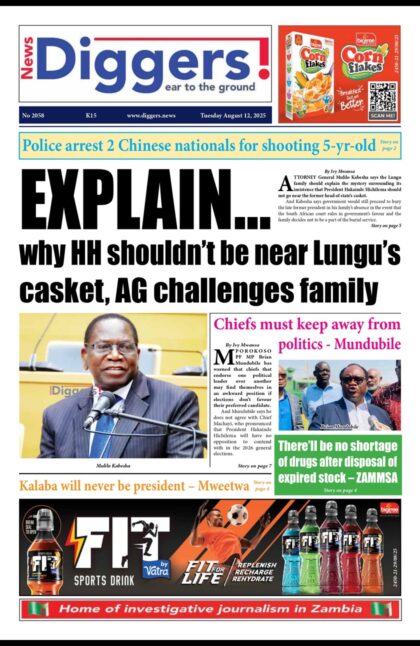ENERGY Minister Mathew Nkhuwa says a delay in logistics to ease imports of petroleum products into Zambia have sustained fuel shortages in some parts of the country, but the situation will soon be normalised.
In an interview, Nkuwa said fuel shortages still being experienced at selected filling stations were being addressed as Oil Marketing Companies (OMCs) had started to import petroleum products into the country.
He added that OMCs had experienced logistical challenges to import feedstock into the country, a situation that had sustained the ongoing fuel shortages still being experienced around selected parts of the country, such as Lusaka and Eastern Province.
“I issued a statement to that effect that there was a looming price hike, the Oil Marketing Companies were running the fuel at ransom, they were running the fuel at a more expensive price than what we’re selling it at and hence us removing the VAT, and we removed the excise duty. And now they are happy they have started bringing in the fuel. When we increased the fuel price last (in December, 2019), it was K14.50 to one US $1, today it is K21.50 to US $1 and at that point in time, we increased the fuel. We were at US $40 per barrel, today, we are at US $53 per barrel. So, it was justified in a way that they wanted a hike put; we decided because of the COVID-19 not to increase the fuel price, we decided that we drop the excise duty and the VAT,” said Nkhuwa.
“But now we have agreed, everything is okay, the fuel stocks are rolling in. You see, when fuel starts coming in, the logistics take a little bit longer. But I have spoken to all the Oil Marketing Companies and they are filling up their filling stations. It would be nice for you to speak to them to get their position as well because as far as we are concerned, they are okay, they are going to give us fuel.”
Last week, Oil Marketing Companies Association of Zambia (OMCAZ) president Dr Kafula Mubanga said fuel pump prices were likely to be adjusted upwards despite the government’s decision to waive the importation of finished petroleum products.
He added that as long as there was no assurance from suppliers to flood the market with petroleum products, fuel pump prices were still likely to be hiked.
“The waivers were issued somewhere in December, last year, and we are in January. The Honourable (Energy) Minister (Mathew Nkhuwa) is just confirming the laid down strategy that government has employed in ensuring that there is adequate supply of petroleum products on the market. And not only have they given us the waivers, they have actually given us zero rating of taxes such as excise duty and so on. So, we expect that with those kind of incentives, we will see a drastic change in terms of product delivery in the country. And I still echo that there is much that needed to be done in as far as procuring these national products and supply is concerned,” said Dr Mubanga.
“The empowerment process must target indigenous Zambians to drive the industry as opposed to letting it be driven by multinationals who at any time would want to hold the products at ransom and hold it back and inform government of what’s obtaining. So, we feel that government needs to do more in terms of empowering indigenous Zambians to drive the industry. We have the capacity; we have the brains; we have the experience; we have the requisite experience to drive this industry, but what we see, today, the large market share is driven by foreign nationals, the multinationals. So, it doesn’t give a guarantee that having been given this rebate, we will ensure that products are made available. But if they do not, there is no guarantee that they will not force government to revise the prices.”
























